07.12.2021.
Minister Stefanović: We really want women in the armed forces to feel absolutely equal
Deputy Prime Minister and Minister of Defence Nebojša Stefanović, PhD, participated in the Ministerial Round Table on the Second Regional Study "The Position of Women in the Armed Forces in the Western Balkans". The round table, organized by UNDP SEESAC, was held today in Budva. The Minister said that Serbia does not only strive to achieve good quantitative indicators, but wants women in the armed forces to feel absolutely equal.
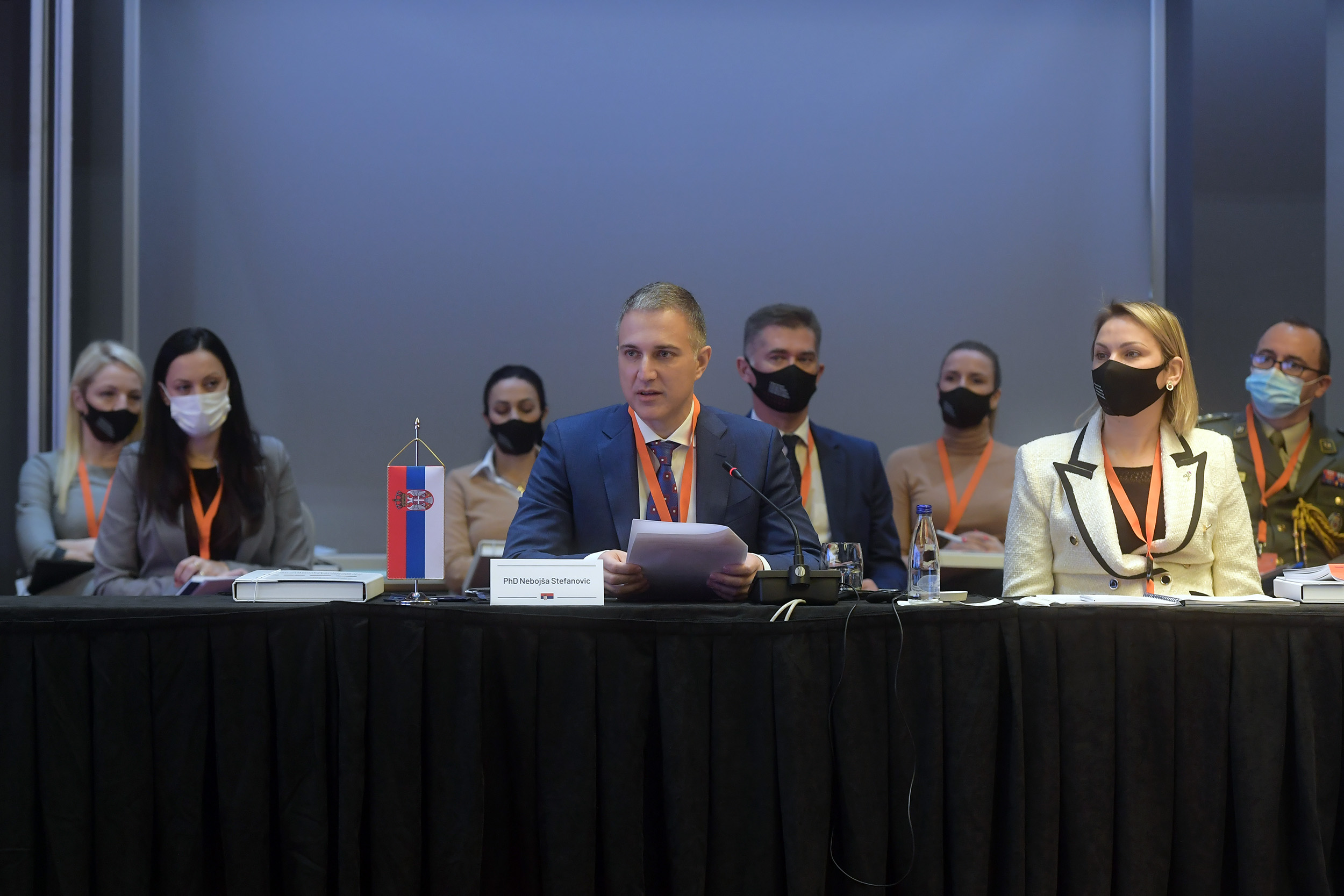 Addressing the participants, Minister Stefanović pointed out that the Ministry of Defence and the Serbian Armed Forces have fully embraced the equal opportunities policy and the gender equality concept as one of their strategic commitments, and that measures to increase women's representation and equal participation in all tasks are being implemented in a strategic and planned fashion.
Addressing the participants, Minister Stefanović pointed out that the Ministry of Defence and the Serbian Armed Forces have fully embraced the equal opportunities policy and the gender equality concept as one of their strategic commitments, and that measures to increase women's representation and equal participation in all tasks are being implemented in a strategic and planned fashion.- Sometimes it sounds like a phrase, but I want to assure you that we really strive to make it not mere statistics, but something that people in the military really feel. There was a specific “inherited situation”, there were, of course, the needs of the defence system, but there were also the experiences and good examples from other countries, such as Norway. I have had the opportunity to talk to the representatives of the Norwegian Ministry of Defence, which has a general recruitment system that includes both men and women, and they told me about that process and how it ensured the selection of the best people for the armed forces picked from the entire population. Norway has shown by a concrete example, after a certain period of time, that the efficiency of its armed forces has increased. With such a concrete example, it would be detrimental not to think about including women in a more serious way - Minister Stefanović emphasized.
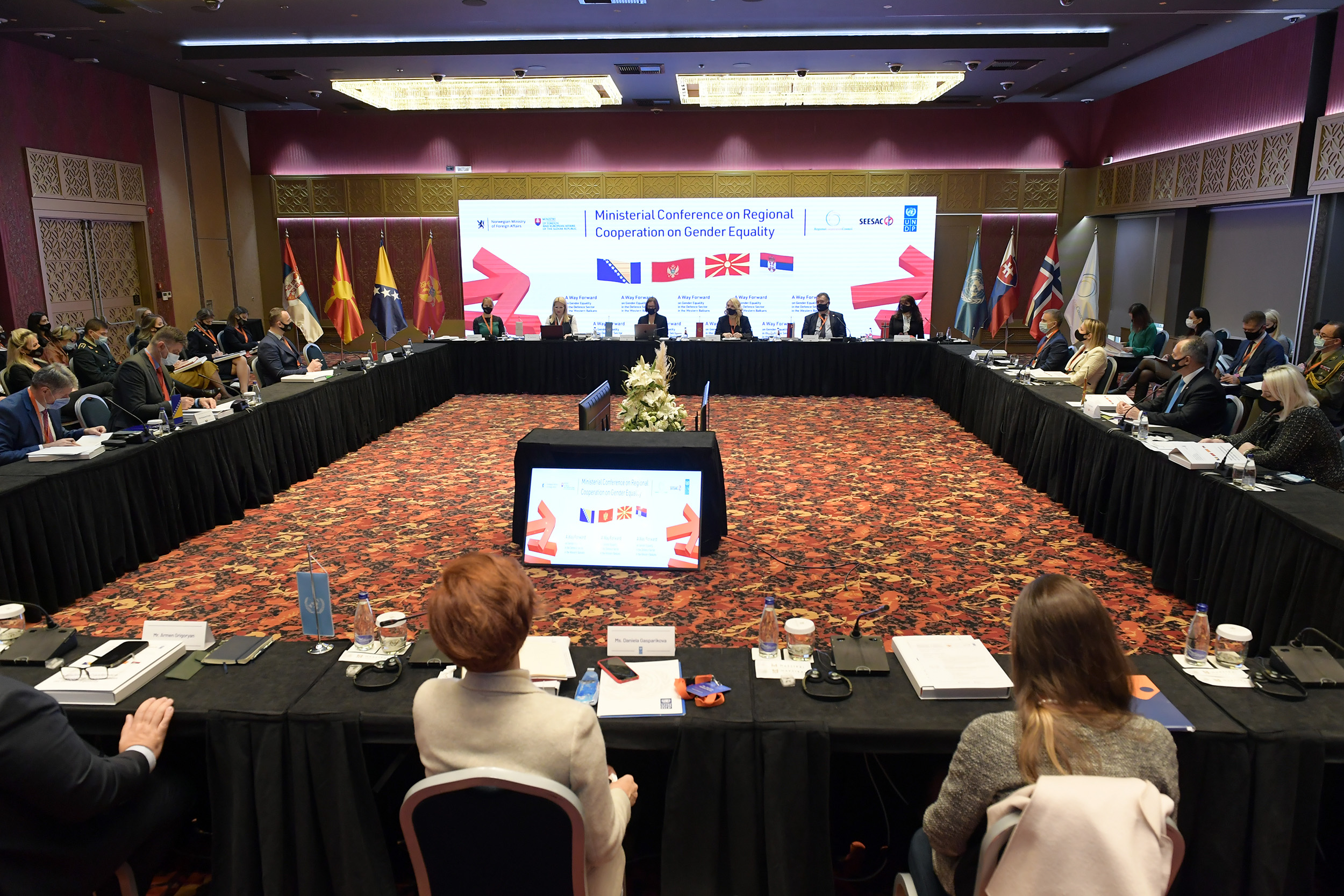
Minister Stefanović also said that, for us, regional cooperation is a very important instrument for promoting and implementing Security Council Resolution 1325 on Women, Peace and Security.
- As far as the legal norm is concerned, the normative basis for regulating gender equality in Serbia are the Law on the Serbian Armed Forces, the Law on Defence and the Labour Law, which regulate working conditions in all sectors, including the armed forces. At the national level, several strategic documents have been adopted over the past period - the 2021-2030 Gender Equality Strategy was adopted a few months ago, in October, the Law on Gender Equality was adopted in early 2021 after the successful implementation of the first two National Action Plans for the implementation of UNSCR 1325, and preparations are underway for drafting the third one - Minister Stefanović pointed out.
Minister Stefanović points out that Serbia does not only strive to achieve good quantitative indicators, because the statistics can be good without the essential goal being achieved.
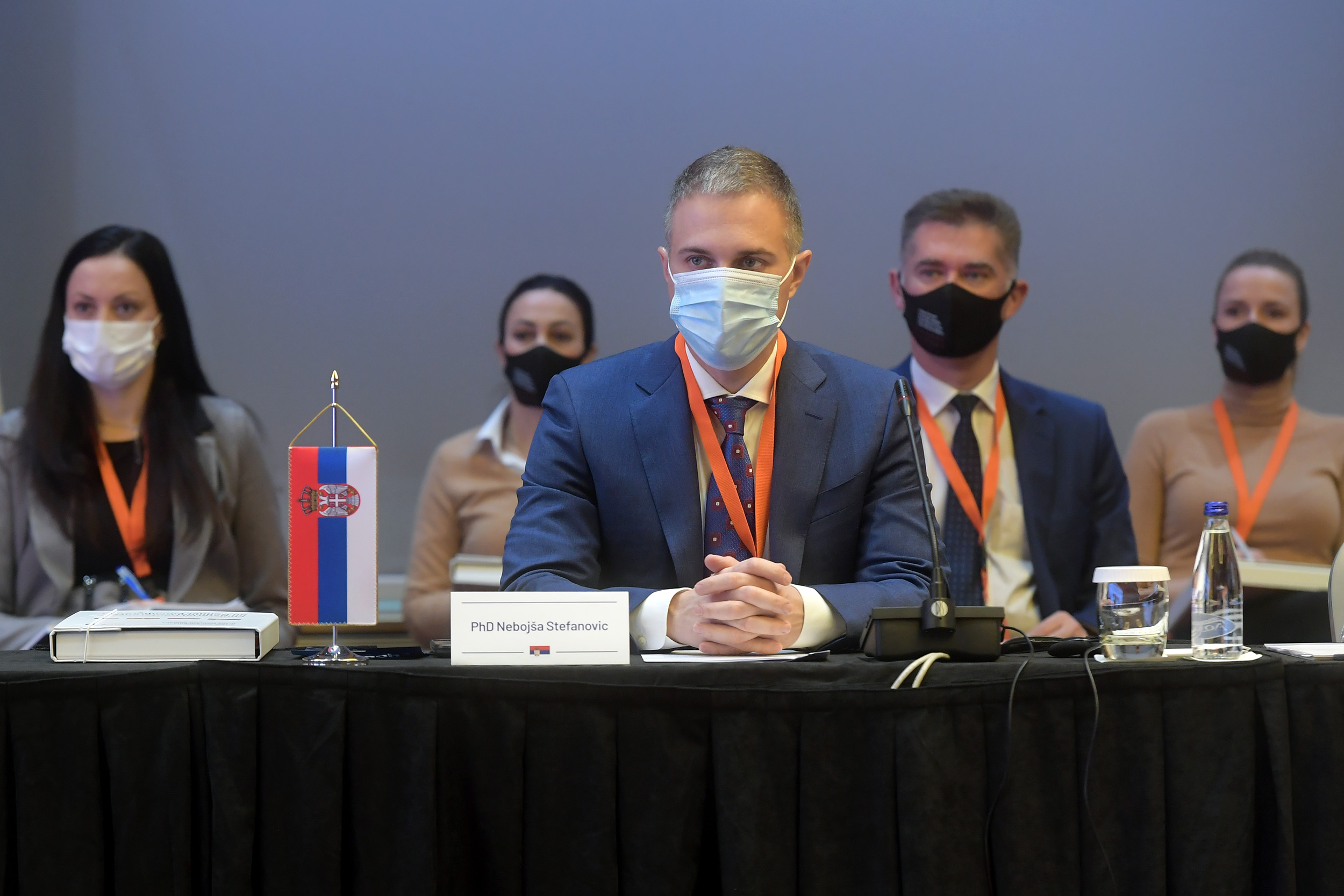 - Our goal is to improve the quality of the human resources management system in general. We want women in the Serbian Armed Forces and the Ministry of Defence to feel absolutely equal, although, I would say, they are superior in performing their tasks in some areas. I hope that next time we look at 2021, 2022, 2023 progress reports, you will see considerable improvement and participation of women, women in uniform, in the command system, but also in managerial roles – Minister Stefanović emphasized.
- Our goal is to improve the quality of the human resources management system in general. We want women in the Serbian Armed Forces and the Ministry of Defence to feel absolutely equal, although, I would say, they are superior in performing their tasks in some areas. I hope that next time we look at 2021, 2022, 2023 progress reports, you will see considerable improvement and participation of women, women in uniform, in the command system, but also in managerial roles – Minister Stefanović emphasized.He also noted that in our society, the military has traditionally been intended for men.
- I will take Milunka Savić, our famous early 20th century heroine, as an example. To be able to enlist, Milunka Savić had to impersonate a man, cut her hair and do many other things, because they would not have accepted her otherwise. And she not only showed that she was equal to male soldiers, but she surpassed many in her military and war fighting skills - Minister Stefanović noted.
Minister Stefanović added that the situation is different today, although the traditional belief that the army belongs to men is deeply rooted in this region and it is not easy to change that in a short time.
- But we have to continue working on that persistently. In my opinion, the UNDP is really working hard and these results deserve a sincere praise, as something that can be truly seen and felt as progress in each of our ministries. For a year and two months, since I have been appointed the Minister of Defence, I have tried to meet as many members of the armed forces and the Ministry as possible. There are many great ladies among them. Captain Ana Perišić has become the first fighter pilot in our history. In addition to having fulfilled all rigorous criteria, and aviation personnel knows how difficult it is to even become a pilot, let alone a fighter pilot, she achieved really impressive results and surpassed many. On top of it all, she is the mother of two small children – Minister Stefanović said, adding that he has taken Captain Perišić as an example, but that she is not the only one.
The Minister also presented a number of data related to gender equality in the defence system.
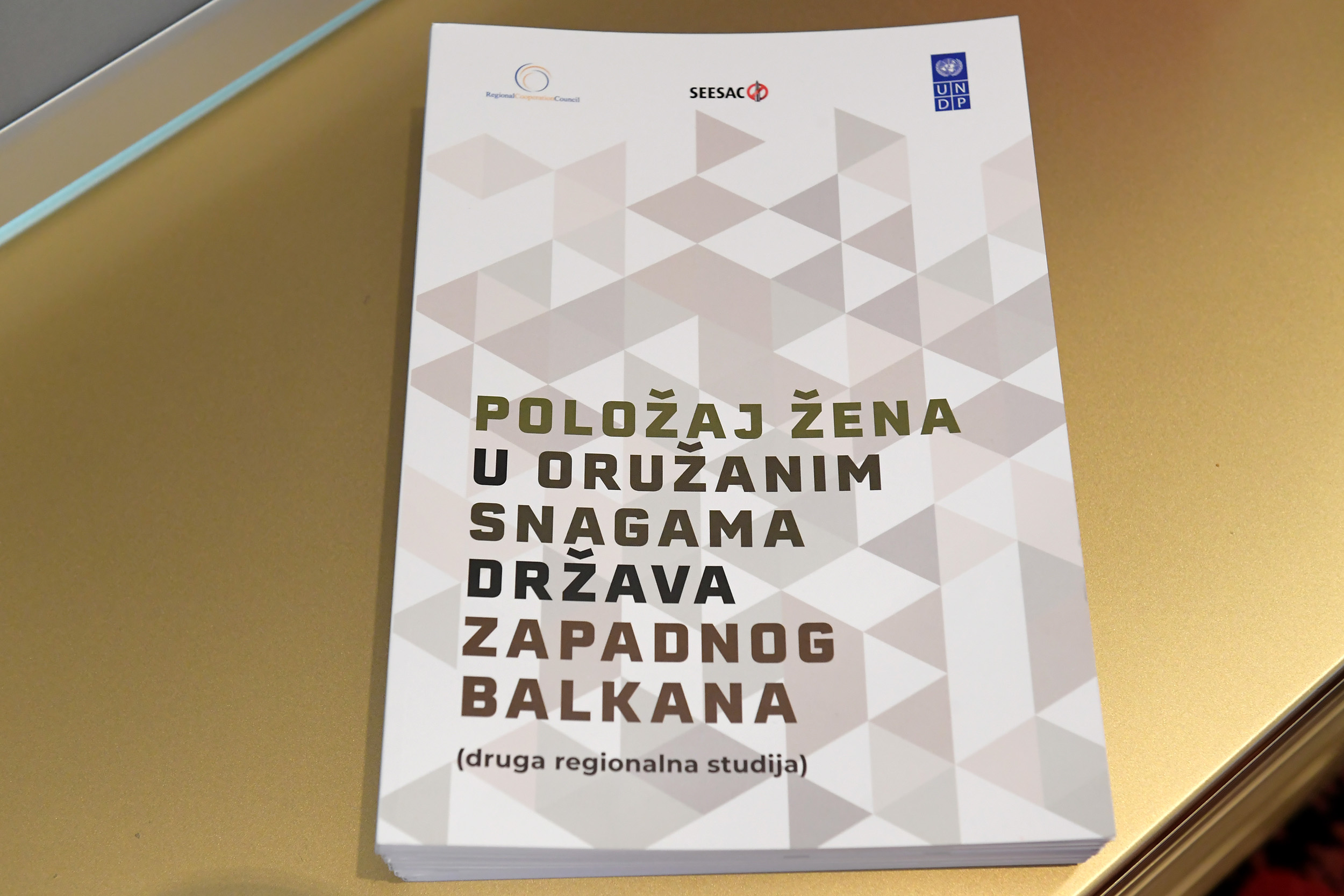 – First of all, for many years now, there has been a growing number of women, i.e. girls, enrolling in the Military High School and Military Grammar School, where young people either prepare for further schooling at the Military Academy or for non-commissioned officer ranks specializing in the military technical field. This year, for the first time, more than 50 percent of the students who enrolled in the Military Grammar School were girls. And the Grammar School, in essence, prepares you for schooling at the Military Academy. At this moment, 39% of Military Academy cadets are women - the Minister pointed out.
– First of all, for many years now, there has been a growing number of women, i.e. girls, enrolling in the Military High School and Military Grammar School, where young people either prepare for further schooling at the Military Academy or for non-commissioned officer ranks specializing in the military technical field. This year, for the first time, more than 50 percent of the students who enrolled in the Military Grammar School were girls. And the Grammar School, in essence, prepares you for schooling at the Military Academy. At this moment, 39% of Military Academy cadets are women - the Minister pointed out.Stefanović also said that 70 percent of cadets attending the Military Medical Academy’s Medical Faculty are women.
– Considering that military health is a very important segment of the Ministry of Defence of the Republic of Serbia and that the number of military health care personnel amounts to 4,500 people, which is a large portion of our armed forces personnel, the fact that almost 70 percent of future doctors are ladies speaks about the role of women - said the Minister.
He also referred to the significant increase in the number of women enlisting.
– This year, over 16% of soldiers who have applied for voluntary military service are women, and of course, we are trying to retain them as active duty members. We have deployed about 14 percent of women to peacekeeping missions in 2021. So, this trend continues and I am glad that women are applying and being selected on the basis of international organizations’ rigorous criteria - Stefanović emphasized.
According to him, Serbia continues to engage in a dialogue with its partners around the world regarding gender aspects, and UNDP and SEEAC are in fact the two most important partners of the Ministry of Defence and the Serbian Armed Forces in the field of gender issues.
– The study guide prepared by the United Nations Development Programme will certainly provide us with support for some of the future challenges - said the Minister, underlining the importance of the project’s regional character and the participation of four countries.
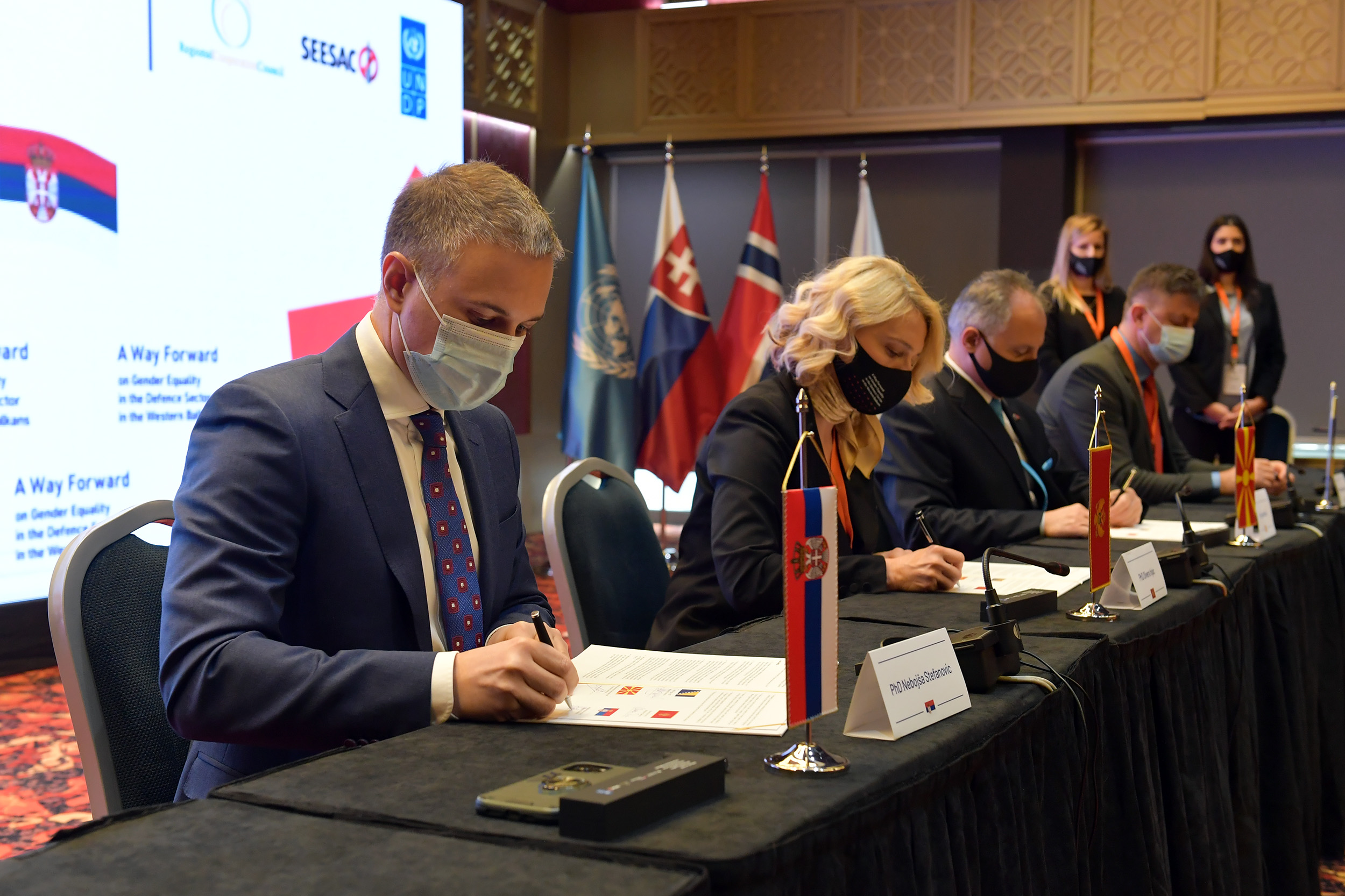 He also thanked Minister Injac for her warm hospitality and expressed expectation that significant progress would be made next year regarding the issues discussed at the round table.
He also thanked Minister Injac for her warm hospitality and expressed expectation that significant progress would be made next year regarding the issues discussed at the round table.Representatives of the participating countries also signed a Ministerial Declaration on Support for Gender Equality in Security Sector Reform in the Western Balkans, agreeing to collaborate on specific activities and projects of common interest related to promoting diversity and the principles of gender equality.
At the round table, Head of the UNDP SEEAC Serbia Office Bojana Balon presented the results and findings of the regional study guide, alongside the analysis of the participating countries’ results at the national level and progress in the field of gender equality.
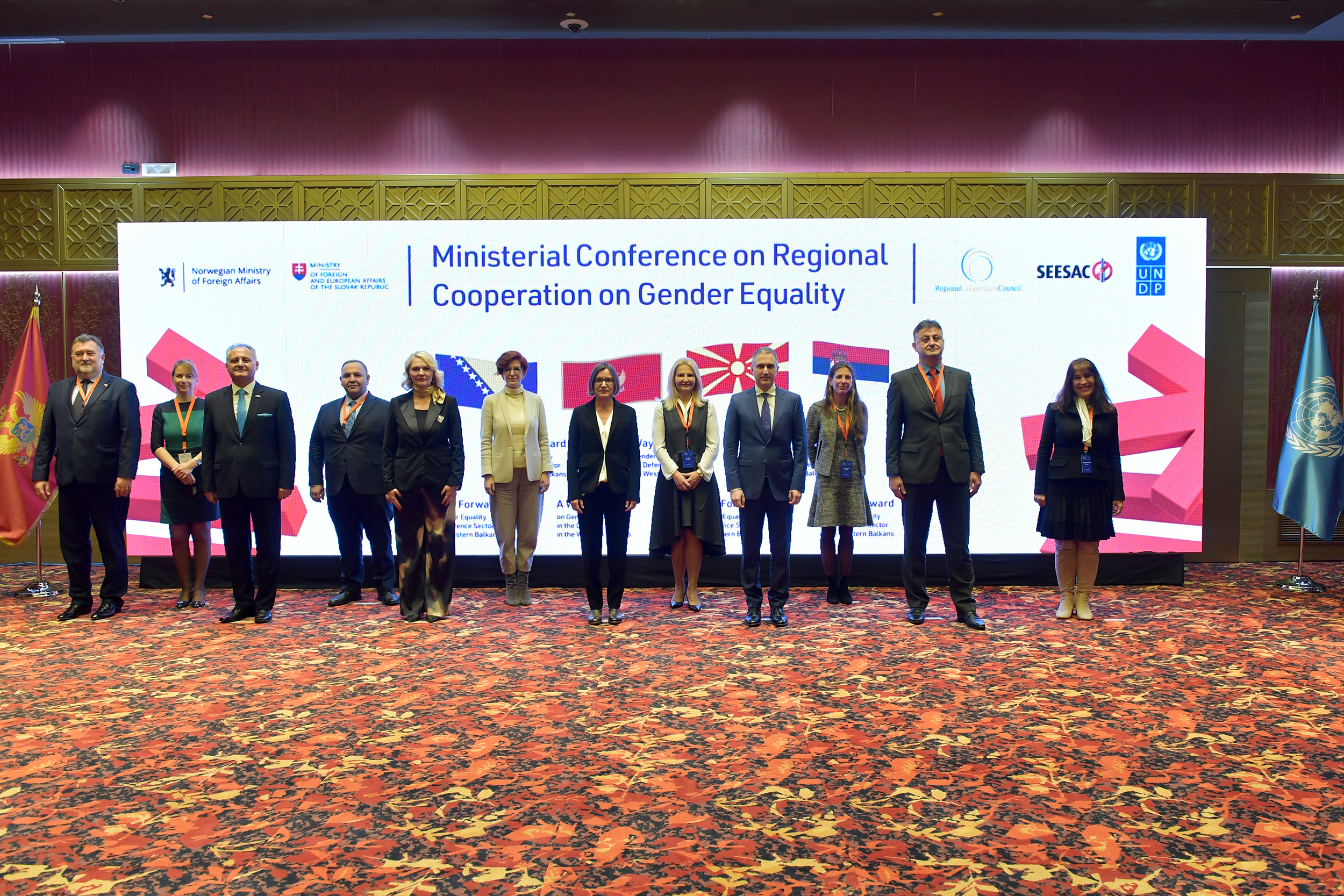 In her opening remarks, Mirjana Spoljarić Eger, Director of the UNDP Regional Bureau for Europe and the Commonwealth of Independent States, said that this gathering was a strong incentive to strengthen regional cooperation and emphasized UNDP's support for regional initiatives and activities to improve gender equality in ministries of defence and armed forces.
In her opening remarks, Mirjana Spoljarić Eger, Director of the UNDP Regional Bureau for Europe and the Commonwealth of Independent States, said that this gathering was a strong incentive to strengthen regional cooperation and emphasized UNDP's support for regional initiatives and activities to improve gender equality in ministries of defence and armed forces.The meeting, attended by the ministers of defence of Serbia and Montenegro, State Secretary of the Ministry of Defence of North Macedonia and the Secretary of the Ministry of Defence of Bosnia and Herzegovina, reviewed the current situation and modalities for strengthening regional cooperation in the field of gender equality.




